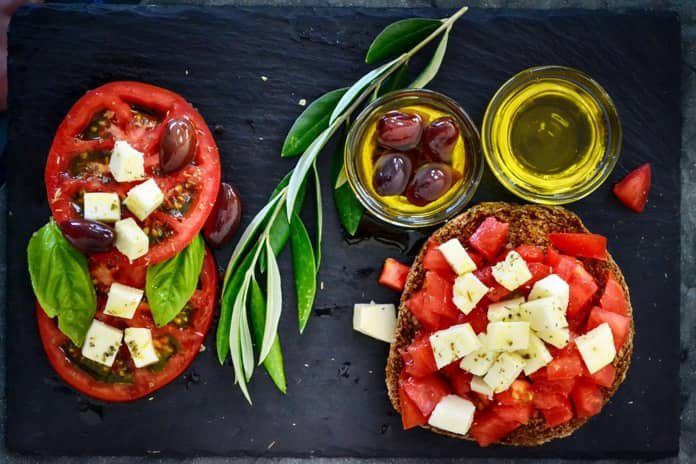A recent study compared the effects of two Mediterranean-style diets and a low-fat diet on heart disease prevention in high-risk individuals.
Heart disease refers to a group of conditions resulting from narrowed or blocked blood vessels due to a build-up of fatty deposits on their inside walls. It includes conditions such as heart attack and stroke. Several factors can increase the chance of developing heart disease, such as smoking, physical inactivity, being overweight or having type 2 diabetes.
Healthy lifestyle choices can help heart disease prevention, including eating a “heart-healthy” diet. Studies have observed that eating a Mediterranean-style diet is linked to a lower risk of heart disease. People living around the Mediterranean usually have a diet rich in olive oil, fruit, nuts, vegetables and whole grain cereals, a moderate intake of fish and poultry and a low intake of dairy products, red meat, processed meats and sweets. They also drink wine in moderation with meals.
A Spanish study compared two Mediterranean-style diets with a low-fat diet in people at high risk of heart disease. The results of the study were published in 2013, but following concerns about some of the study methods, the researchers re-analyzed their data. The revised report was recently published in The New England Journal of Medicine.
Between 2003 and 2009, the researchers recruited 7,447 people at several centers in Spain to take part in the study. The participants were between 55 to 80 years old, and had at least three major risk factors for heart disease, although they had no heart disease upon entering the study.
They were randomly assigned to one of three diet groups: Mediterranean diet with extra-virgin olive oil supplementation, Mediterranean diet with nut supplementation, or low-fat diet (control group). All participants received educational sessions from nutritionists on how to follow their assigned diet, with regular support sessions throughout the study to check how well they were keeping to the diet.
Those in the extra-virgin olive oil group received 1L of oil per week per household, with the recommendation to have at least 4 tablespoons per person per day. Those in the nut group received 30g of mixed nuts per day. Those in the low-fat group (control group) received a non-food related gift. Total calories were not restricted in any of the groups, and no particular advice was given on physical activity.
The researchers followed the participants for an average of 4.8 years and checked for the occurrence of any major heart disease-related events such as heart attack, stroke or death from a cardiovascular cause. They compared the heart disease outcomes in the three diet groups.
There were heart disease-related events in 288 participants – 96 events (3.8%) in the Mediterranean diet plus extra-virgin olive oil group, 83 (3.4%) in the Mediterranean diet plus nuts group and 109 (4.4%) in the low-fat diet (control) group. There was a relative reduction in the risk of heart disease-related events of around 30% in the Mediterranean diet groups. The results of the reanalysis were similar to that of the 2013 report.
The researchers concluded that the incidence of major cardiovascular events over a five-year period was lower in participants who followed a Mediterranean diet supplemented with either extra-virgin olive oil or nuts than in those who followed a low-fat diet. Although there has been some debate about the methods and findings of this study, it does add support to the view that a Mediterranean-style diet is beneficial for heart disease prevention.
Written by Julie McShane, Medical Writer
Reference: Estruch R, Ros E, Salas-Salvado J, et al. Primary prevention of cardiovascular disease with a Mediterranean diet supplemented with extra-virgin olive oil or nuts. N Engl J Med 2018;378:e34. Doi: 10.1056/NEJMoa1800389.



